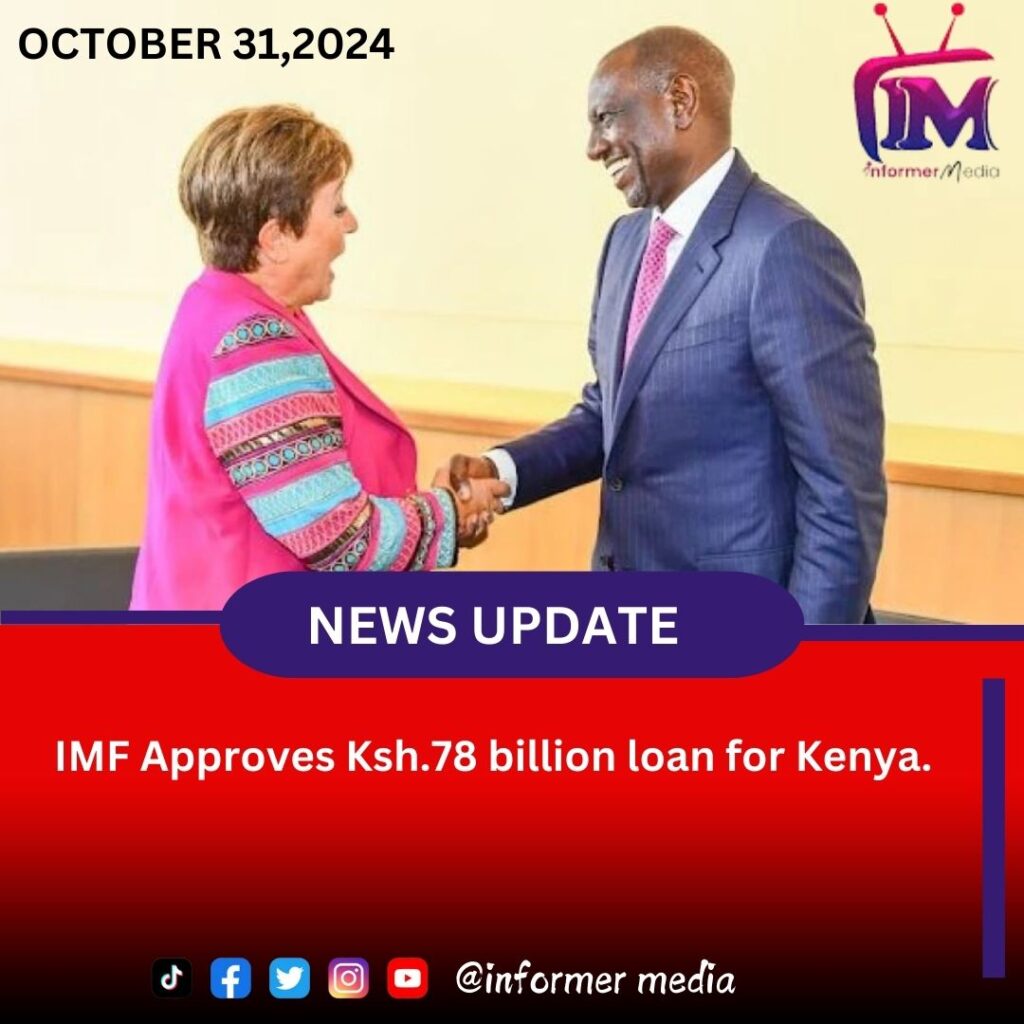The executive board of the International Monetary Fund (IMF) has approved the Kenyan government’s request to access a Ksh.78 billion loan in an effort to rebuild its fiscal policies.
The review comes after the IMF concluded a meeting in determining the seventh and eighth reviews; a process that was disrupted in early June during the anti-government and Finance Bill 2024 protests spurred by Gen Z.

Following the meeting, the IMF exuded confidence that the funds would address Kenya’s challenge in reviving the country’s economic status.
IMF currently has three programs with Kenya; Extended Fund Facility (EFF), Extended Credit Facility (ECF) arrangement and Resilience and Sustainability Facility (RSF) programs.
EFF and ECF are programs that provide financial assistance to countries facing problems in reducing inflation levels because of structural issues that require time to rebuild.
The difference between the two programs is based on duration as EFF provides countries with four years of restructuring while ECF can be extended to five years.
RSF are funds that support a country’s climate agenda.
The citizens of Kenya, particularly those impacted by economic challenges, were anxiously awaiting a crucial decision from the International Monetary Fund (IMF) regarding the multi-billion-dollar loan disbursement vital for the country’s economic stability. The decision was being discussed by the IMF Executive Board in Washington, D.C.. The meeting was scheduled for October 30, 2024, with the decision expected soon after.
The loan is essential for addressing Kenya’s fiscal challenges, including a Sh346 billion revenue shortfall caused by the withdrawal of the Finance Bill, 2024, which aimed to broaden the tax base and eliminate fuel subsidies.
As Kenya stands on the brink of a pivotal decision by the IMF, public sentiment is rife with anxiety. Many citizens are concerned about the implications of this loan on their lives. Mary Wambui, a small business owner in Nairobi, states, “We need this support to get back on our feet. Without it, I fear for my business and my family’s future.”
However, scepticism looms over the government’s ability to meet the stringent IMF conditions, including combating corruption and implementing tax reforms. University student John Mwangi expresses doubt, saying, “I don’t trust them to follow through. We’ve seen promises made before that were never kept.”
Furthermore, fears of increased taxation are palpable among the public. Teacher Aisha Juma remarks, “We are already struggling to make ends meet. Any new taxes will only make things worse for families like mine.”
In this climate of uncertainty, Dr Peter Ochieng, an economist at the University of Nairobi, offers a glimmer of hope: “This loan could be a turning point for our economy, but it hinges on the government’s willingness to make tough choices.”
The outcome of the IMF’s decision could shape Kenya’s economic landscape for years to come, and citizens are keenly aware that their futures may depend on these critical discussions.



















